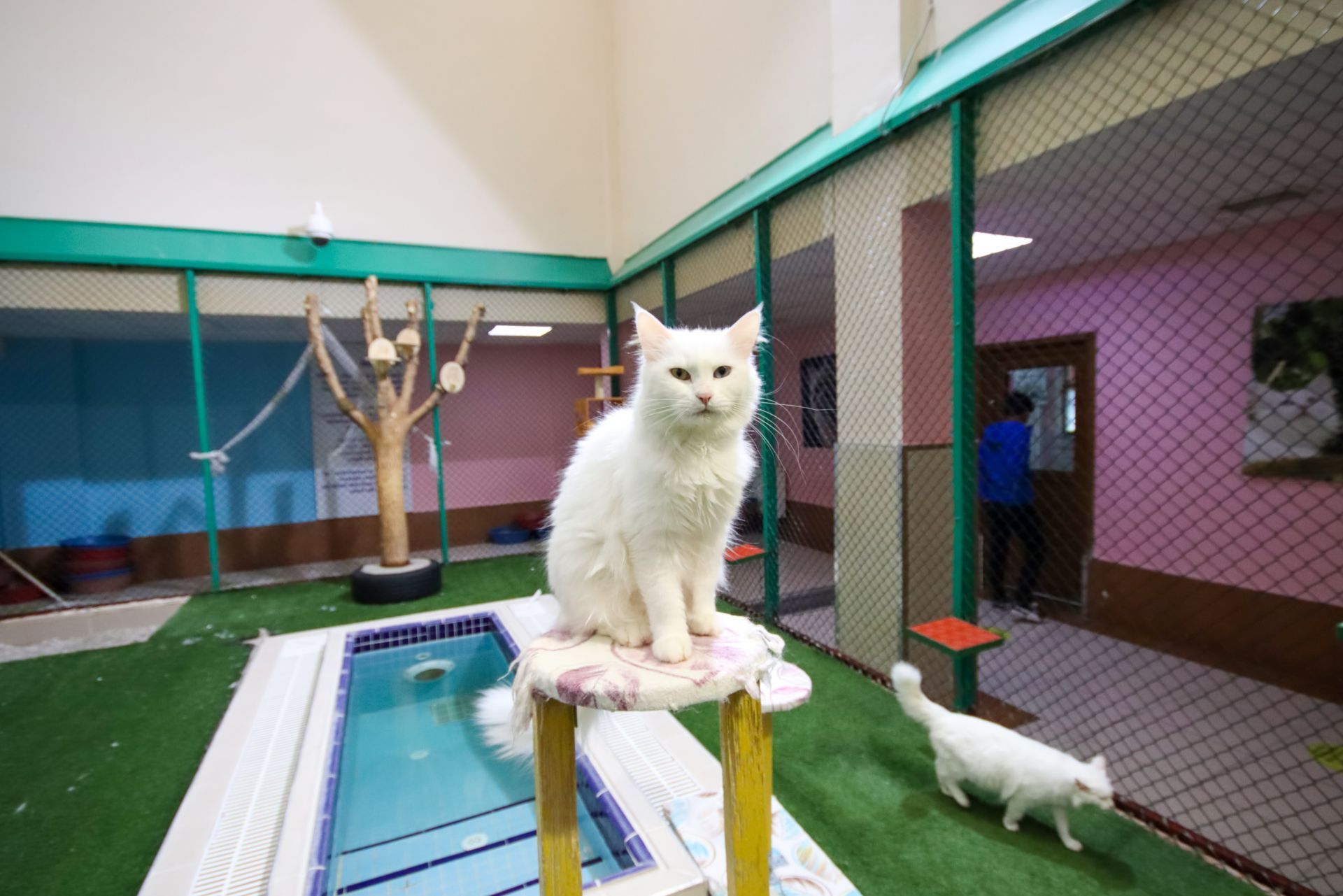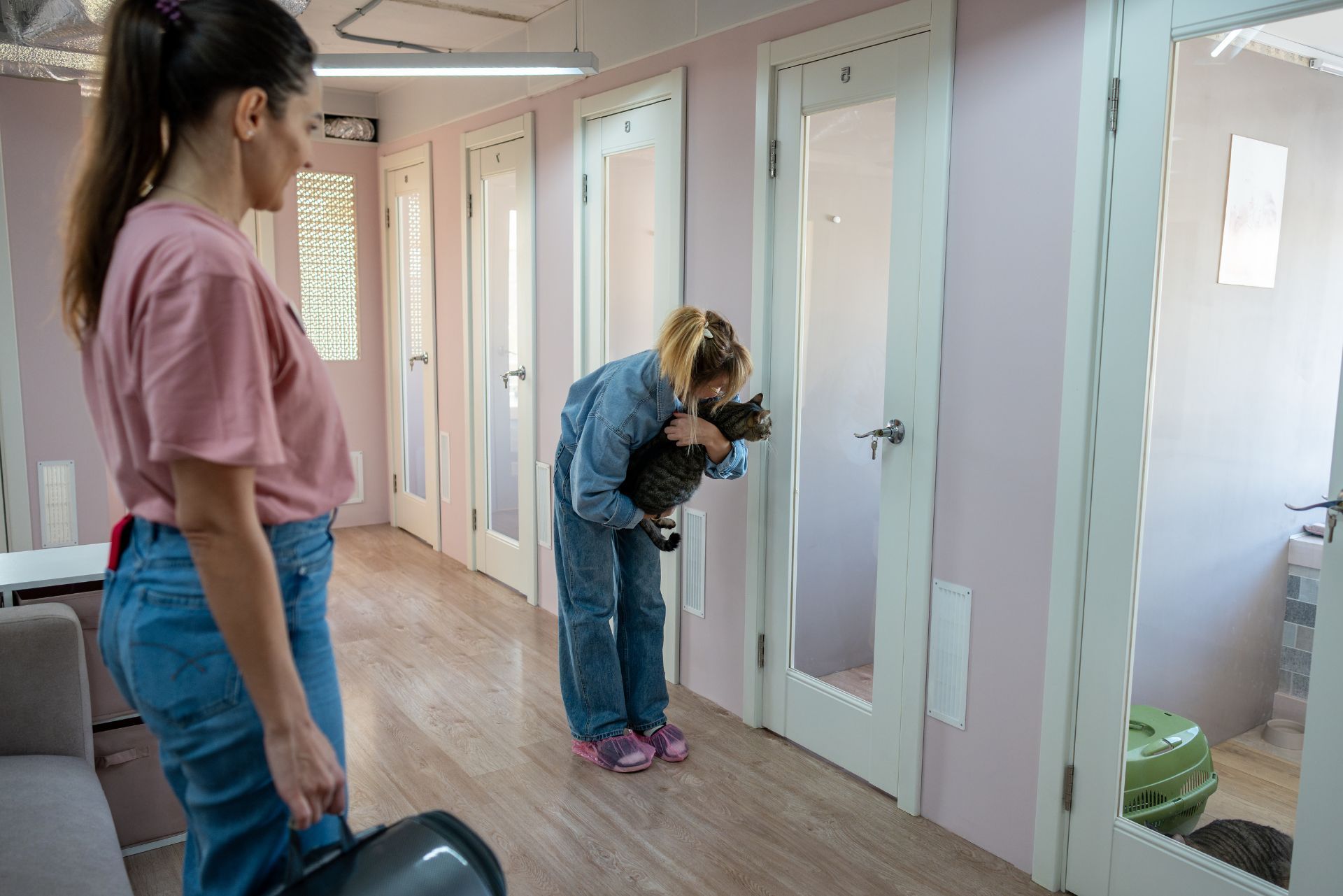New York Pet Boarding & Grooming Insurance
See How We're Different:
or Call Us: 212-425-8150

Most Common Business Policies
Index
Contact Us
In the bustling metropolis of New York, pet owners often seek reliable services for their furry companions, including pet boarding and grooming. However, with the joy of providing care for pets comes the responsibility of ensuring their safety and well-being. This is where pet boarding and grooming insurance plays a crucial role. Understanding this type of insurance can help pet service providers protect their businesses while offering peace of mind to pet owners. This article delves into the essential aspects of pet boarding and grooming insurance in New York, covering its importance, types of coverage, and tips for finding the right policy.
Why Pet Boarding & Grooming Insurance is Essential
Pet boarding and grooming businesses face unique risks that can lead to significant financial losses. From accidents to illnesses, the potential for unforeseen events is ever-present. Here are some reasons why having insurance is crucial.
Protection Against Liability Claims
One of the primary reasons for obtaining pet boarding and grooming insurance is to protect against liability claims. If a pet gets injured while in your care or causes damage to someone else's property, you could be held liable. Liability insurance covers legal fees and settlements, ensuring that your business can withstand such incidents without facing bankruptcy.
Coverage for Property Damage
In addition to liability claims, pet boarding and grooming facilities often deal with property damage. This could include damage to the facility itself or equipment used for grooming. Insurance can help cover the costs of repairs or replacements, allowing business owners to focus on providing excellent service rather than worrying about unexpected expenses.
Employee Protection
Employees are an essential part of any pet service business. If an employee gets injured while handling pets or using grooming equipment, workers' compensation insurance can provide necessary coverage. This not only protects the employee but also shields the business from potential lawsuits related to workplace injuries.
Coverage for Pet Injuries or Illnesses
Another critical aspect of pet boarding and grooming insurance is the coverage it provides for pets that may suffer injuries or illnesses while under your care. Accidents can happen, whether it’s a grooming mishap or a pet experiencing a sudden health issue. Having insurance can help cover veterinary expenses, which can be substantial. This not only ensures the well-being of the pets but also helps maintain your reputation as a responsible and caring business owner, fostering trust with your clients.
Business Interruption Insurance
In the unfortunate event of a disaster, such as a fire or natural calamity, business interruption insurance can be a lifesaver. This type of coverage helps compensate for lost income during the time your facility is closed for repairs or renovations. It allows you to maintain your financial stability and continue paying your employees, even when you’re unable to operate. This peace of mind is invaluable, as it enables you to focus on rebuilding and getting back to what you love—caring for pets and serving your community.

Types of Coverage Available
When exploring pet boarding and grooming insurance, it’s crucial to understand the various types of coverage available. Each type addresses different risks and can be tailored to fit the specific needs of a business. Understanding these options can not only protect your business but also provide peace of mind as you focus on caring for pets and serving your clients.
General Liability Insurance
General liability insurance is a foundational coverage for any pet boarding and grooming business. It protects against claims of bodily injury, property damage, and personal injury. For example, if a pet injures another pet or a customer while at your facility, this insurance can cover the associated costs. Additionally, it can also safeguard your business against claims that arise from accidents occurring outside of your premises, such as if a pet escapes and causes damage to a neighbor's property. This broad coverage ensures that you are not left financially vulnerable due to unforeseen incidents.
Professional Liability Insurance
Professional liability insurance, also known as errors and omissions insurance, is vital for businesses that provide professional services. For grooming businesses, this coverage protects against claims of negligence or failure to perform services as promised. If a grooming procedure results in an injury or an allergic reaction, this insurance can help cover legal fees and damages. Furthermore, it can also protect against claims related to unsatisfactory service, such as a client claiming that their pet was not groomed to the expected standard. This type of coverage is essential for maintaining your reputation and ensuring that you can continue to operate without the fear of crippling legal costs.
Property Insurance
Property insurance covers physical assets, such as buildings, equipment, and inventory. In the event of theft, fire, or natural disasters, property insurance can help business owners recover their losses. This coverage is particularly important for pet boarding facilities that house multiple animals and expensive grooming equipment. Moreover, property insurance can also extend to cover business interruption, which means that if your facility is temporarily closed due to a covered event, you may receive compensation for lost income during that time. This aspect of property insurance is crucial for maintaining financial stability and ensuring that you can quickly bounce back from unexpected disruptions.
Factors Influencing Insurance Costs
The cost of pet boarding and grooming insurance can vary significantly based on several factors. Understanding these factors can help business owners make informed decisions when selecting their insurance policies.
Business Size and Revenue
Generally, larger businesses with higher revenues will face higher insurance premiums. This is because larger operations often have more assets to protect and a higher volume of clients, which increases the risk of potential claims. Conversely, smaller businesses may benefit from lower premiums but should still ensure they have adequate coverage. It's important for small business owners to evaluate their specific needs and consider policies that offer scalable options, allowing them to adjust their coverage as they grow.
Location and Risk Factors
The location of a pet boarding or grooming business can also impact insurance costs. Areas with higher crime rates or natural disaster risks may lead to increased premiums. Additionally, businesses located in densely populated urban areas may face different risks compared to those in suburban or rural settings. For instance, urban businesses might encounter more liability claims due to the higher foot traffic and potential for accidents, while rural businesses may need to consider risks associated with wildlife or environmental factors. Understanding the unique risks associated with each location can help business owners tailor their insurance coverage more effectively.
Claims History
A business's claims history plays a significant role in determining insurance costs. If a business has a history of multiple claims, insurers may view it as a higher risk, resulting in increased premiums. Conversely, a clean claims history can lead to discounts and lower rates. It's crucial for business owners to implement risk management strategies to minimize the likelihood of claims, such as regular training for staff on safety protocols and maintaining a clean and safe environment for pets. Additionally, engaging in proactive communication with clients about their pets' health and behavior can help mitigate risks and foster a more secure atmosphere for both pets and staff.

Choosing the Right Insurance Provider
Selecting the right insurance provider is a critical step in securing adequate coverage for a pet boarding and grooming business. Here are some tips to consider when evaluating potential insurers.
Researching Insurers
Before committing to an insurance provider, it’s essential to conduct thorough research. Look for insurers that specialize in pet services and have a solid reputation in the industry. Reading reviews and testimonials can provide insights into the experiences of other business owners. Additionally, consider reaching out to local pet industry associations or networks, as they often have recommendations for reputable insurers who understand the unique challenges faced by pet care businesses. Engaging with these communities can also provide valuable information about any claims experiences or customer service interactions that may influence your decision.
Comparing Policies
Not all insurance policies are created equal. When comparing policies, pay close attention to the coverage limits, exclusions, and deductibles. It’s important to ensure that the policy meets the specific needs of the business, offering protection against the most relevant risks. For instance, some policies may cover veterinary expenses for injuries sustained while in your care, while others might not. Moreover, consider additional coverage options such as liability insurance, which can protect your business from claims related to accidents or injuries that occur on your premises. Understanding the nuances of each policy can help you make a more informed choice that aligns with your business operations.
Consulting with an Insurance Agent
Working with an experienced insurance agent can simplify the process of finding the right coverage. An agent can help identify potential risks, recommend appropriate coverage options, and provide guidance on navigating the complexities of insurance policies. This personalized assistance can be invaluable for business owners who may not be familiar with the intricacies of insurance. Furthermore, a knowledgeable agent can also assist you in understanding the claims process, ensuring that you are prepared in the event of an incident. They can offer insights into common pitfalls to avoid and help you establish a risk management plan that minimizes your exposure to potential liabilities, ultimately allowing you to focus more on providing exceptional care for your furry clients.
Common Exclusions in Pet Boarding & Grooming Insurance
While pet boarding and grooming insurance can provide extensive coverage, it’s essential to be aware of common exclusions that may affect claims. Understanding these exclusions can help business owners avoid surprises when filing a claim.
Pre-existing Conditions
Many insurance policies exclude coverage for pre-existing conditions. If a pet has a known health issue prior to being boarded or groomed, any related claims may not be covered. This is particularly important for grooming services that may involve procedures that could exacerbate existing conditions. For instance, a dog with a history of skin allergies may react negatively to certain grooming products, and any resulting complications would likely not be covered under the policy. Therefore, it is advisable for grooming facilities to conduct thorough health assessments before services are rendered, ensuring that any known issues are documented and communicated to pet owners.
Negligence or Intentional Acts
Insurance policies typically do not cover damages resulting from negligence or intentional acts. For example, if an employee intentionally harms a pet or fails to follow safety protocols, the insurance provider may deny the claim. It’s crucial for businesses to implement strict safety measures and training programs to minimize the risk of such incidents. Regular staff training sessions on animal handling, emergency response, and customer service can help create a safer environment for both pets and employees. Additionally, maintaining clear records of employee training and incidents can be beneficial in demonstrating a commitment to safety and care, which may be looked upon favorably by insurance providers.
Natural Disasters
While some property insurance policies may cover natural disasters, others may have exclusions for specific events like floods or earthquakes. Business owners should carefully review their policies and consider additional coverage options if they operate in areas prone to such disasters. Moreover, it is prudent to develop a disaster preparedness plan that outlines procedures for safely evacuating pets and securing the facility during emergencies. This proactive approach not only protects the animals in your care but also demonstrates to clients that you prioritize their pets' safety, potentially enhancing your business's reputation. Additionally, investing in infrastructure improvements, such as flood barriers or reinforced structures, can mitigate risks and may even lead to lower insurance premiums over time.
Tips for Reducing Insurance Premiums
Implementing Safety Protocols
Establishing and maintaining rigorous safety protocols can significantly reduce the risk of accidents and claims. This includes proper training for employees, regular safety drills, and maintaining a clean and safe environment for pets. Insurers may offer discounts for businesses that demonstrate a commitment to safety.
Bundling Insurance Policies
Many insurance providers offer discounts for bundling multiple policies. For instance, a business may save money by combining general liability, property, and professional liability insurance into one package. This not only simplifies management but can also lead to significant savings.
Regularly Reviewing Coverage
As a business grows and evolves, so do its insurance needs. Regularly reviewing coverage ensures that the policy remains adequate and relevant. This can also provide opportunities to adjust coverage levels or switch providers for better rates.
Understanding the Claims Process
Filing a claim can be a daunting process, especially for those unfamiliar with insurance procedures. Understanding the steps involved can help business owners navigate this process more effectively.
Documenting the Incident
When an incident occurs, the first step is to document everything thoroughly. This includes taking photographs, gathering witness statements, and keeping records of any relevant communications. Comprehensive documentation can strengthen a claim and help expedite the process.
Notifying the Insurance Provider
Once the incident has been documented, the next step is to notify the insurance provider. Most insurers have specific timeframes for reporting claims, so it’s crucial to act promptly. Providing all necessary information and documentation at this stage can facilitate a smoother claims process.
Following Up on the Claim
After filing a claim, it’s important to follow up regularly with the insurance provider. This ensures that the claim is being processed and allows for addressing any additional information or documentation that may be required. Staying proactive can help prevent delays and ensure a timely resolution.
Conclusion
Pet boarding and grooming insurance is an essential component of running a successful pet service business in New York. By understanding the various types of coverage available, the factors influencing insurance costs, and the importance of choosing the right provider, business owners can protect themselves against potential risks. Implementing safety protocols, regularly reviewing coverage, and being informed about the claims process can further enhance the security of a business. Ultimately, investing in comprehensive insurance not only safeguards the business but also fosters trust and confidence among pet owners, ensuring their beloved companions are in good hands.
